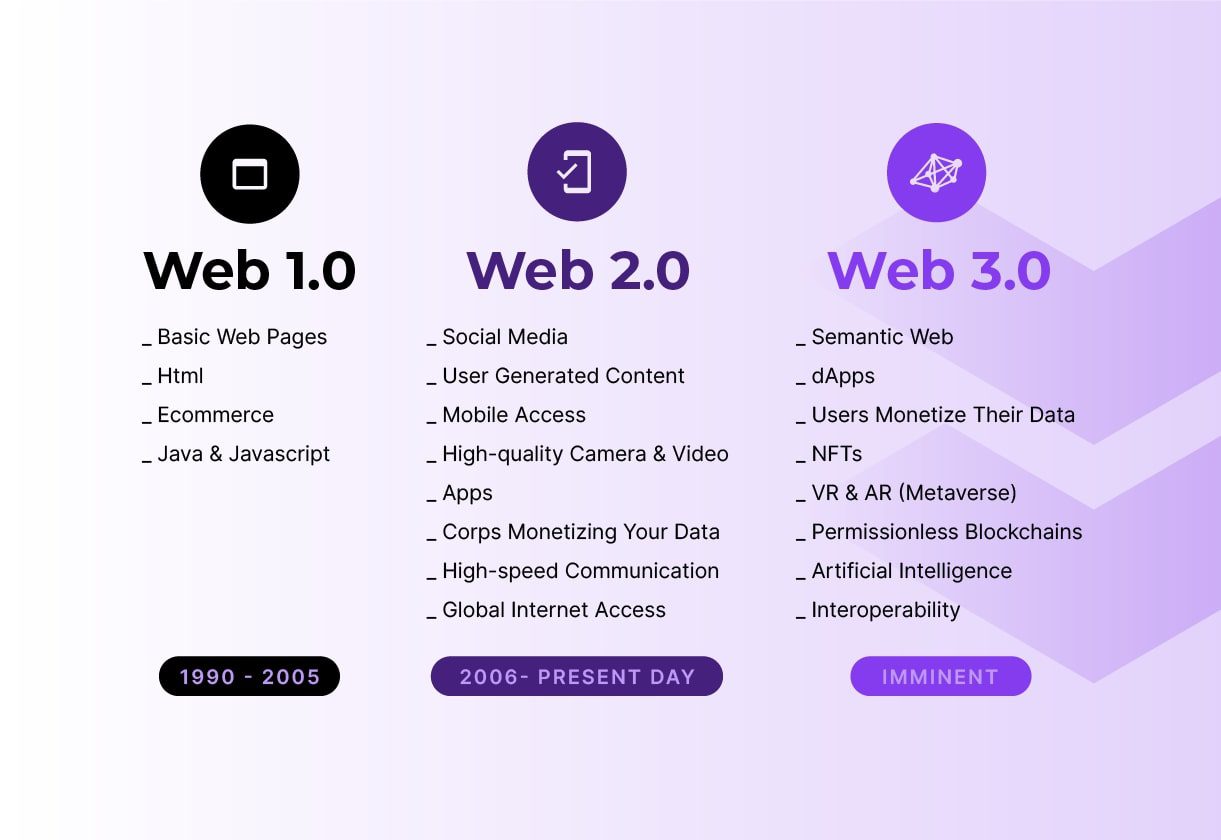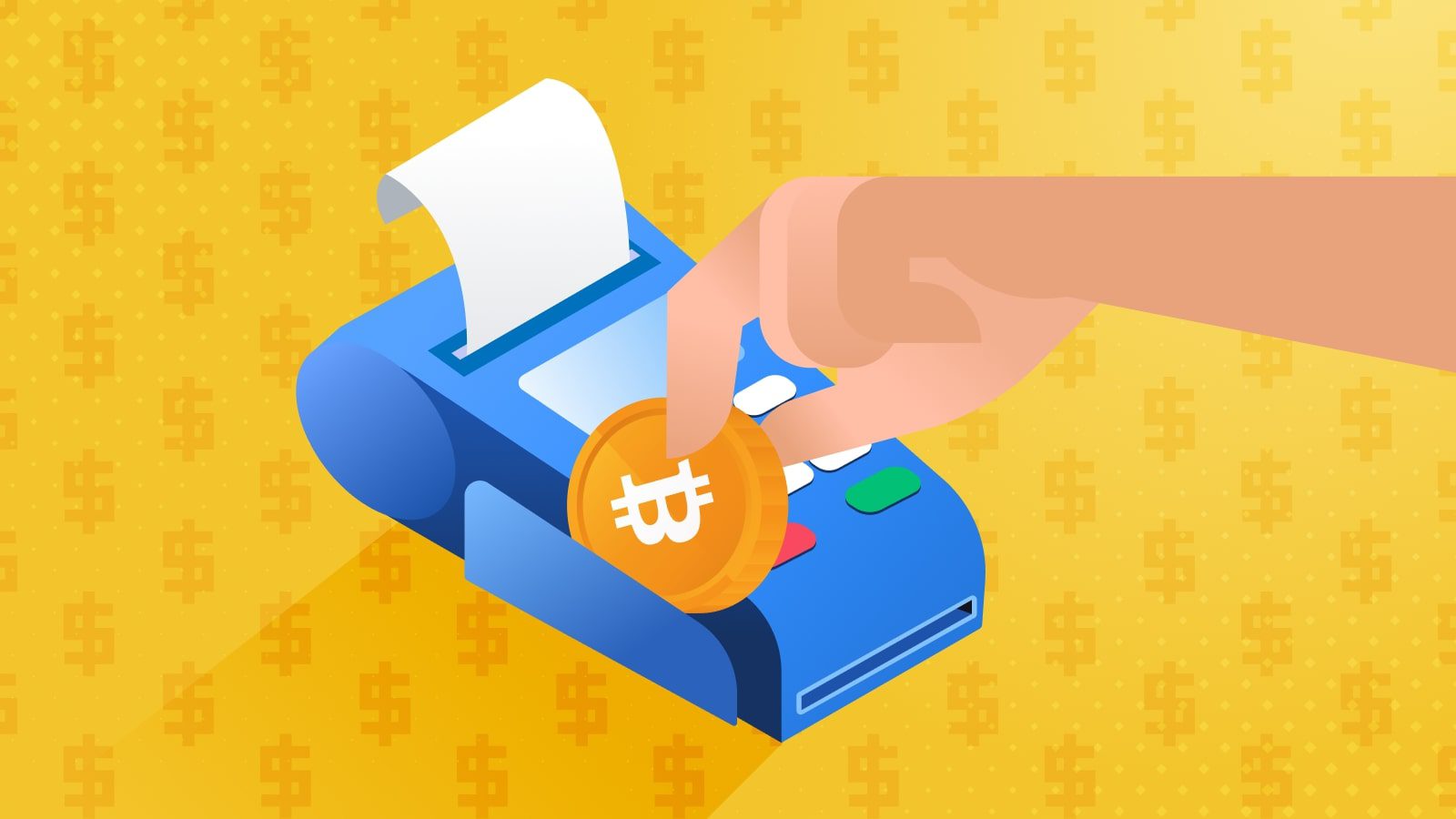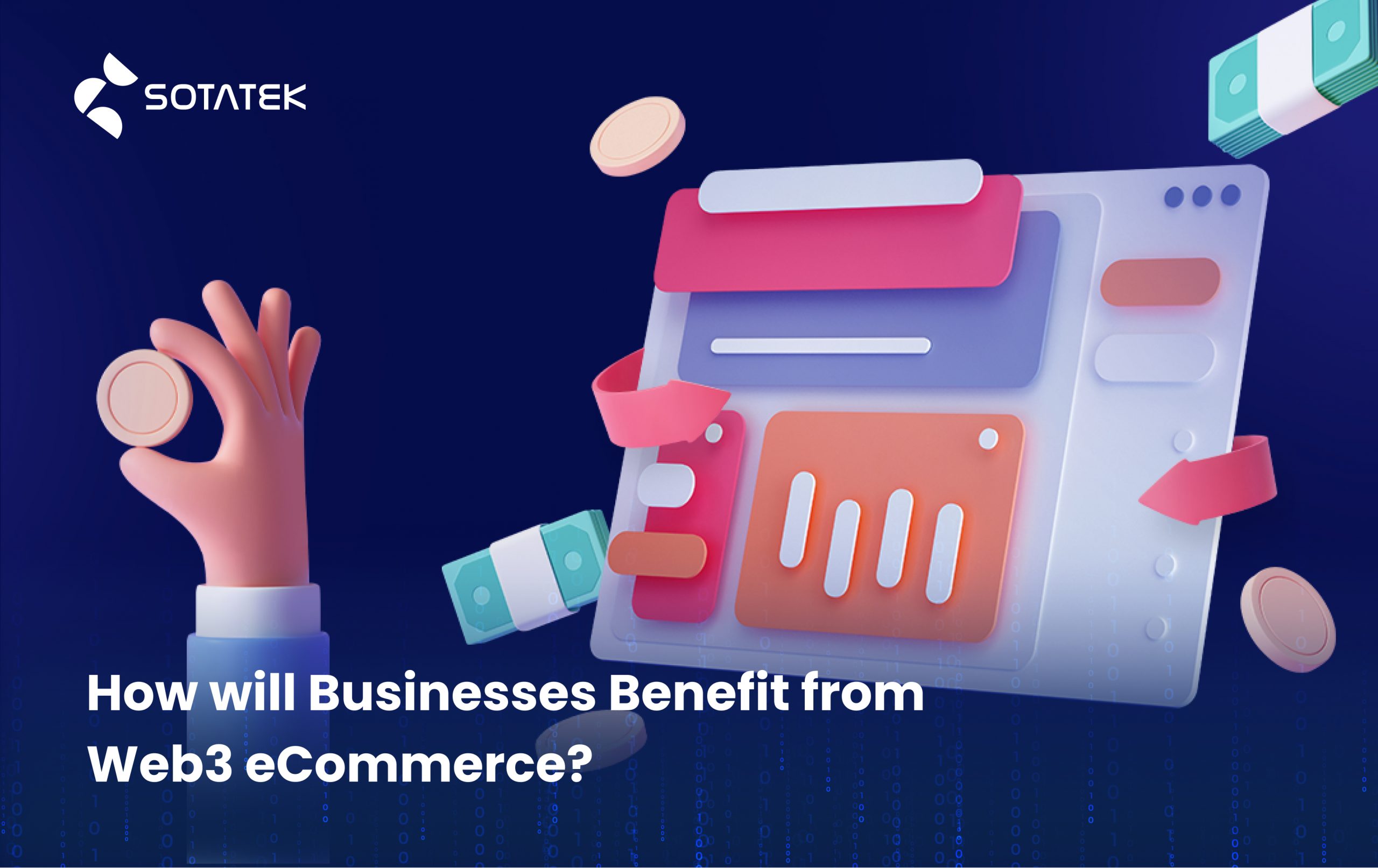The eCommerce industry has experienced incredible growth over the past few years. In the US, eCommerce sales are expected to surpass $1 trillion by 2022, says a report by Insider Intelligence. Another report claims that e-commerce accounted for 13% of the total retail sales in the first quarter of 2022. To keep up with the latest trends, the eCommerce industry is forecast to go through a major transformation: Web3 in eCommerce. Web3 e-commerce has the potential to be disruptive and transformative for the e-commerce industry, as it addresses almost all of its current limitations. To learn more details, let's keep reading this article!
1. What is Web3?
Web 3 is the next step of web development, following Web1 and Web2. It is built using decentralized blockchains — the shared ledger systems used by cryptocurrencies such as Bitcoin and Ether.
If Web 2 has centralized data, which means it is owned and controlled by large corporations, Web 3 is totally different. The decentralized nature of Web3 eliminates the need for such intermediaries. It is a user-centered web architecture in which individuals own and control by themselves.
Web3 also removes the need for “trust” or intermediaries to facilitate virtual transactions, and blockchain technology ensures transaction security and payment reliability. Besides, because it is not dominated by large tech companies that collect potentially sensitive data, it can better protect user privacy.
To conclude, Web 3 characteristics include:
- Open-source information
- Transaction information remains authentic
- Data is controlled by owners
- DeFi Web3 applications replace the centralized monetary system
Related: Can Web 3.0 be the Next Revolution for the Internet?

The development of Web versions
2. Existing Challenges of the eCommerce Industry
Here are the top challenges that eCommerce businesses have to deal with:
- Online identity verification: How does a retailer know if a buyer visiting an e-commerce site is real? Are the details they entered correct? Is it true that they like e-commerce products? How can you move forward if you don't have all of these details? Things can become extremely difficult.
- Cyber and data security: eCommerce industry involves a lot of sensitive data from users (name, address, bank information,...). Therefore, security breaches are one of the greatest challenges. A data-related technical issue can have severe consequences for the brand’s image and daily operations.
- Customer loyalty: Customer loyalty has an important role to play in the eCommerce industry as attracting new customers is often much more expensive than retaining existing ones, given the rising marketing and promotion costs. Besides, the success rate in selling to an existing customer has a higher success rate than selling to a new customer. Therefore, eCommerce businesses always have to think how to keep this customer for the rest of their lives.
- Customer experience: Customers always have high expectations of any brand that they experience. Therefore, it is important to consider the eCommerce website’s navigability, the content flow, segmentation and retail personalization of products based on shoppers’ preferences.
- Growing competitors: The number of eCommerce businesses has been rising dramatically, resulting in a highly competitive market. Therefore, how to stand out from other competitors is a difficult question for any business owner.
3. How can Web3 eCommerce help?
a. Decentralized Finance and Decentralized Marketplace
With Web3 eCommerce, businesses can accept crypto as a payment method besides other traditional ones. Moreover, Web3 will create decentralized markets in which users can choose what they want to be produced. It will be a community-managed market with complete user control and freedom of exchange.
b. A Powerful Authentication Process
eCommerce Web3 will develop a robust customer authentication system. Encrypted digital identities would also improve management and protect them from misuse or theft.
However, the advantages go beyond simple authentication. Warranty information can also be easily stored, accessed, validated, and verified with Web3 in eCommerce.
c. NFT-based Loyalty Rewards Program
NFTs are used in eCommerce and web3 for monetizing loyalty programs. With each purchase, customers will be rewarded some corresponding points, which can then be redeemed for products or discounts. However, instead of random points, companies can now issue NFT-based tokens with a predetermined value.
Related: The Future of NFT Loyalty Program: What can be drawn from Starbucks x Polygon?
d. Customer experience in Metaverse
E-commerce businesses can use web3 to provide their customers with a real-time and unparalleled experience. They will be able to not only scroll through but also visit a virtual store. That is what the metaverse can do in e-commerce.
4. How should Businesses Prepare for Web3 eCommerce Platform?
a. Token Gated Commerce
First, you must pique people's interest in blockchain and NFTs. Token gated commerce connects these technologies and e-commerce by giving customers a reason to purchase your NFTs and invest more loyalty in your brand.
b. Accept Crypto Payment
According to research, 40% of buyers using crypto are making their first purchase from a company, and crypto customers spend twice as much as credit card users. This demonstrates that accepting cryptocurrency payments can result in a high order value.

Businesses need soon accept crypto as a payment method
Therefore, the sooner you begin accepting cryptocurrency as a payment method, the more likely you will be to attract new customers and convert them into loyal fans of your brand, while also increasing the amount customers spend at your store.
c. Metaverse Shopping Experience
The metaverse unlocks endless opportunities for eCommerce businesses to create personalized and engaging shopping experiences.
For instance, with Metaverse, customers can try products on as if they are in your brick-and-mortar stores. From clothes, accessories, to furniture or decor, the AR/ VR glasses can help customers to preview such products before making a purchasing decision. Metaverse experiences will give customers a reason to interact with your Web3 eCommerce presence.
d. Gamify Shopping Experience
Involving a younger audience in the game is as simple as dipping your toes in the water. NFTs can be used to unlock portions of your shopping experience. This makes it more interactive and creates buzz without feeling like traditional advertising.
5. Final Thoughts
To conclude, Web3 in eCommerce is truly a promising future as it will offer customers the best experience. Omnichannel strategies will be even more efficient with Web3, as brands can connect all of their sales channels and operational systems to offer seamless eCommerce experiences for their customers. Web3's inherent quality, decentralization, enables brands to run their apps without a single point of failure and benefit from the robust technology stack of Blockchain.
Want Web3-based solutions to improve user experience and make your e-commerce business stand out? Talk with our experts!
SotaTek is the largest Web3 Solution Provider and Software Development House in Vietnam. Besides the 6 head offices in Vietnam, we also own 4 offices in Japan, the US, and Australia to offer seamless services worldwide. Apart from web3 eCommerce, our technical experts can help leverage Web3 solutions in Education, Healthcare, Retail, Finance, Entertainment,... We are ready to give you out-of-the-box solutions and help you materialize your vision!



